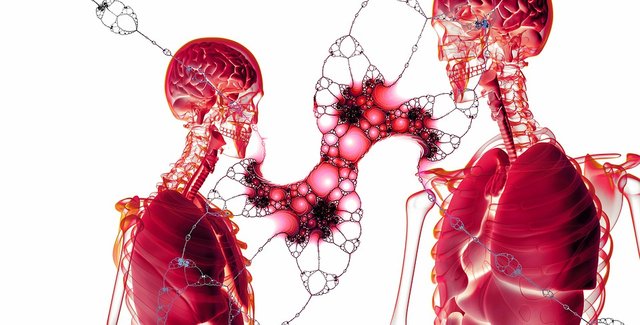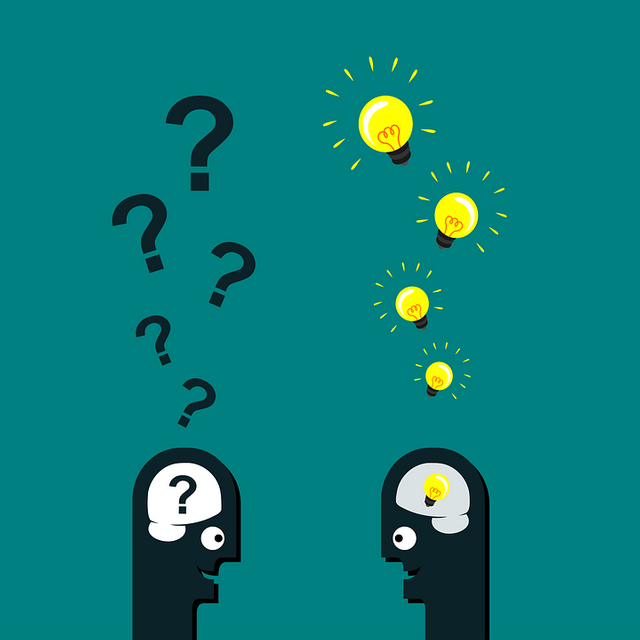Philosophy vs Science: The Mind-Body Problem And The Placebo Effect

Today I would like to discuss one of the oldest problems which boggled our minds for centuries. I’ve tried to present it from a different perspective of which hopefully you haven’t thought about and I think you would find interesting and original.
Introduction
The “mind-body problem” has intrigued us since ancient times
The greek philosophers Plato and Aristotle thought that the human soul, which they considered as vessel of the human wisdom and intelligence cannot be limited by the human body, or more specifically by the human brain. According to them the human mind is not a physical concept. It can receive unlimited information from any kind of source. To this argument Aristotle adds also that if the human mind was a product of a single human organ, then it would be able to receive only specific kind of information like our eyes.[1]
In the 17th century Rene Decartes develops these ideas. He claims that he can be certain that he has a mind, but cannot be sure that he has a body. This makes him deduce that the mind and the body are two separate things.
The human mind is something limitless and thinking, while the human body has its material “shell” and it’s not thinking by itself. How is it possible for these two substances to be connected to each other if they are so different from one another?
Decartes gives a vague explanation saying that the connection between the two is established in the hypophysis, and later his followers claim that the interaction happens with the help of God.[2]
Philosophers who support the idea of property dualism suggest that the processes in the human mind could only occur if the substances (physical and mental) are placed in the correct order.
According to others, mental events are caused by physical events in the brain, but have no effects upon any physical events. They accept the idea of interaction between the two, but do not give an explanation how exactly that happens.[3]
The modern philosophers deny the dualism. They see no point in separating the mind from the body, because it provides a lot of logical and empirical problems. None of the dualism philosophers explain until the end how a non-material substance could interact and change a material one and vice versa. This hypothesis is hard to be defended and even harder to be empirically proven.
Science requires simple and provable statements, which the dualism cannot provide.
Maybe that’s why the materialism is so strongly supported in our days. People who stand behind it’s idea defend themselves with observable and provable facts. They suggest that the mind and the body are not self-excluding substances and that our mental processes could be explained biologically (for example how the physiological changes in the brain could alter the processes).
Of course the dualists could always argue that once the precise order of the substances is disrupted it’s natural for mental disorders to occur.
Although I agree with the point of view of the materialism that the mind and body are two parts of a whole, and the one influences the other with biochemical processes, it actually does not solve the mind-body problem.

The placebo effect
Some people might think that this interesting phenomenon could be used successfully as an “evidence” supporting the idea that mind and body are two separate substances.
Sadly nor the materialists or the dualists are capable to explain why the placebo effect works and what are its mechanisms. Why doesn’t it work with all people ?
Some studies suggest that the placebo and nocebo responses to pain may be activated by subliminal cues, thought to occur outside of a person’s conscious awareness. [4]
Scientists even try to establish which factors of the person’s personality are crucial in order to consider him as “fit to accept this effect”. According to studies empathy, social learning, motivation and emotional intelligence are of most importance.[5]
Others are trying to find genetic markers which predict the placebo effect. For now the main suspect is dopamine, but for now there are no solid data in favor of that hypothesis.[6]
This topic is open for discussion and there are a lot of speculations about it, which only complicate the situation. Both the dualists and the materialists give only descriptive explanations, without defining how placebo actually works and why.
Even scientists and experts are helpless and not sure why this phenomenon exists. They only explain what should be done correctly in order to successfully manipulate the patient that he or she is taking a real medicine.

Conclusion
For now philosophy and science do not offer us solid answers about the mind-body problem.
I cannot say that I agree completely with either side – materialism or dualism.
In their attempt to explain the mind-body problem they only open more space for questions and discussion. For example if according to dualism the mind is not a material substance, independent of the body, why then our experiences are limited by it (the body)? If that was true why are we unable to leave our shells and choose another?
Let’s imagine I actually do it. How many minds could a body have ? Is this their explanation about schizophrenia ?
There are a lot of questions without answers for now. What are your thoughts about this subject ?
Sources:
[3] Property Dualism
[4] Jensen KB, Kaptchuk TJ, Kirsch I, et al. Nonconscious activation of placebo and nocebo pain responses. Proceedings of the National Academy of Sciences. 2012;109(39):15959-15964.
[5] Hall KT, Lembo AJ, Kirsch I, et al. Catechol-O-methyltransferase val158met polymorphism predicts placebo effect in irritable bowel syndrome. PLoS. October 23, 2012.
[6] Meissner K, Kohls N, Colloca L. Introduction to placebo effects in medicine: mechanisms and clinical implications. Philosophical Transactions of the Royal Society B.2011;366:1783–1789.
Pictures:
If you enjoyed this article, you should check the SteemSTEM community, where we aim to post quality content on various scientific topics.
Also, don't forget to upvote, comment and share ! Your support means a lot to me !

The mind-body problem has, as you said, been an ancient question. I personally don't know much about it as I am not a fan of Descartes for personal reasons. However, I believe artificial intelligence and computing offers us a whole new perspective on the problem that was not possible before.
I think an important aspect of the problem is what does it mean to be a mind? To be able to think? Okay, but that is still quite general. Think as in come up with ideas, or think as in compute? Think as in rationality, or think as in the ability to learn? I can argue a computer can do all of these things. I believe Searle's Chinese Room demonstrates a lot of these aspects (https://en.wikipedia.org/wiki/Chinese_room#Chinese_room_thought_experiment), but not all of them. Then questions like, does the computer understand what it is doing, or does the computer simply simulate that it understands what it is doing arise.
I think defining the body is a lot easier. I would do so as any container, capsule, or capacity. I cannot output an answer I fully support either, but I think computers offer a lot of food for thought to this question.
What you say is true. However the mystery is the interaction between the two substances :))